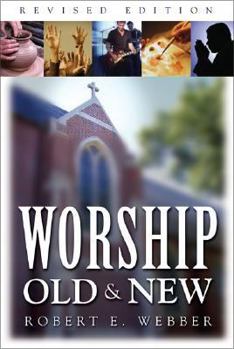Worship Old and New
Select Format
Select Condition 
Book Overview
A reexamination of the actual practice of worship that goes beyond the merely academic to provide a practical perspective through the eyes of the worship leader and the congregation.
The most effective approach to worship is one that blends historical and traditional practices with contemporary elements. Worship Old and New is a scholarly, up-to-date, and thought-provoking resource for anyone serious about exploring worship and how to bring about a worship renewal in the church.
Now reformatted and updated for an easier, more logical approach to worship theology, this revised edition is divided into four major sections, addressing:
The biblical foundation of worship--found in the Old and New Testaments as well as the early Christian movement.The biblical theology of worship--how worship is an enactment of the Gospel.A brief history of worship--from ancient and medieval, to twentieth-century renewal.An overview of how worship is practiced--from content and structure, to the role of music and art.New information is incorporated into each section to give you a better grasp of the biblical themes of worship, a deeper understanding of Old Testament customs, and a solid grounding in modern-day renewal movements.
This book is ideal for ministerial, classroom, and congregational settings.





